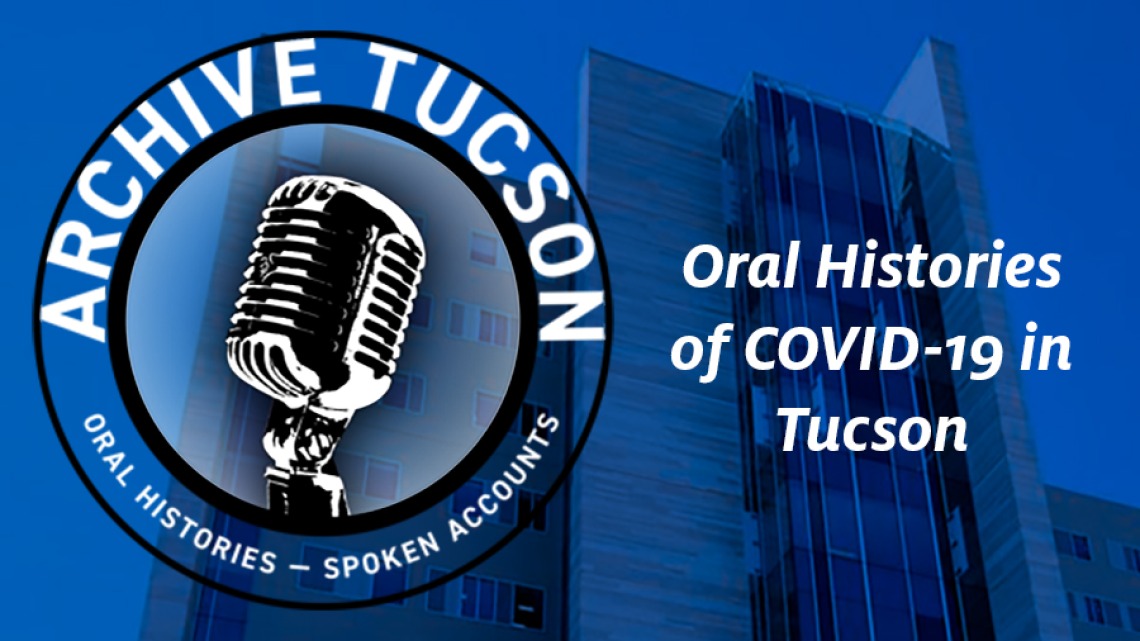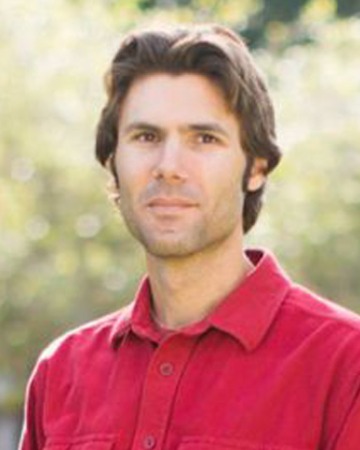COVID-19 in Tucson: One oral historian's efforts to preserve our pandemic stories

Nearly 40 interviews are included in Archive Tucson's COVID oral history collection.
Before the pandemic, University Libraries’ oral historian, Aengus Anderson, spent a lot of time interviewing Tucsonans and recording their stories.
The interviews are preserved in Archive Tucson, a diverse and ever-growing collection of memories about life and work in this corner of the Sonoran desert.

“COVID changed my work immediately,” said Anderson. “Everyone I normally would talk to was in a high-risk demographic, so my in-person interviews had to end.”
At the same time, history was unfolding as COVID transformed daily life.
While the pandemic grabbed many headlines, there were still countless stories about life during COVID that were too detailed or local to be preserved in news stories. Anderson holds a master's degree in History from the University of Arizona, an experience that made him acutely aware of the stories that survive and are shared—and those stories that are never known.
“Oral history excels at saving the details of daily life,” Anderson said. “We're able to capture the sort of experiences people might not bother to write down, but are tremendously useful to historians. Oral history also preserves stories from people who might not otherwise document their lives."
In the spring of 2021, Anderson began recording oral histories about COVID on Zoom. The interviews focused on local healthcare, education, business, and housing, documenting details about the daily and long-term impact the pandemic was having in real time.
“Literally, everyone in Tucson has a story about how COVID affected our community,” Anderson said. “The challenge is finding a balance between depth and breadth.”
Almost 40 people recorded oral histories in the first year of the project, including an intensive care unit doctor, a bus driver, high school students, and employees involved in rent relief efforts. Now, more than a year later─and after several COVID variants─Anderson is following up with some of the people he interviewed.
Dominique Hamilton, a registered nurse at St. Mary's Hospital, and Rom Rahimian, an emergency room resident at Banner - University Medical Center Tucson recently shared their perspectives and observations.
The project is far from over. Anderson still has a long list of people he is planning to contact again.
"I also want to interview more people who work in essential occupations," said Anderson. "I wasn't able to fully represent them in the first series of oral histories and want to make sure their stories are heard.”
More information
If you have suggestions for essential workers who were working during the early days of COVID and would be interested in being interviewed, contact Aengus Anderson at aengus@arizona.edu.
